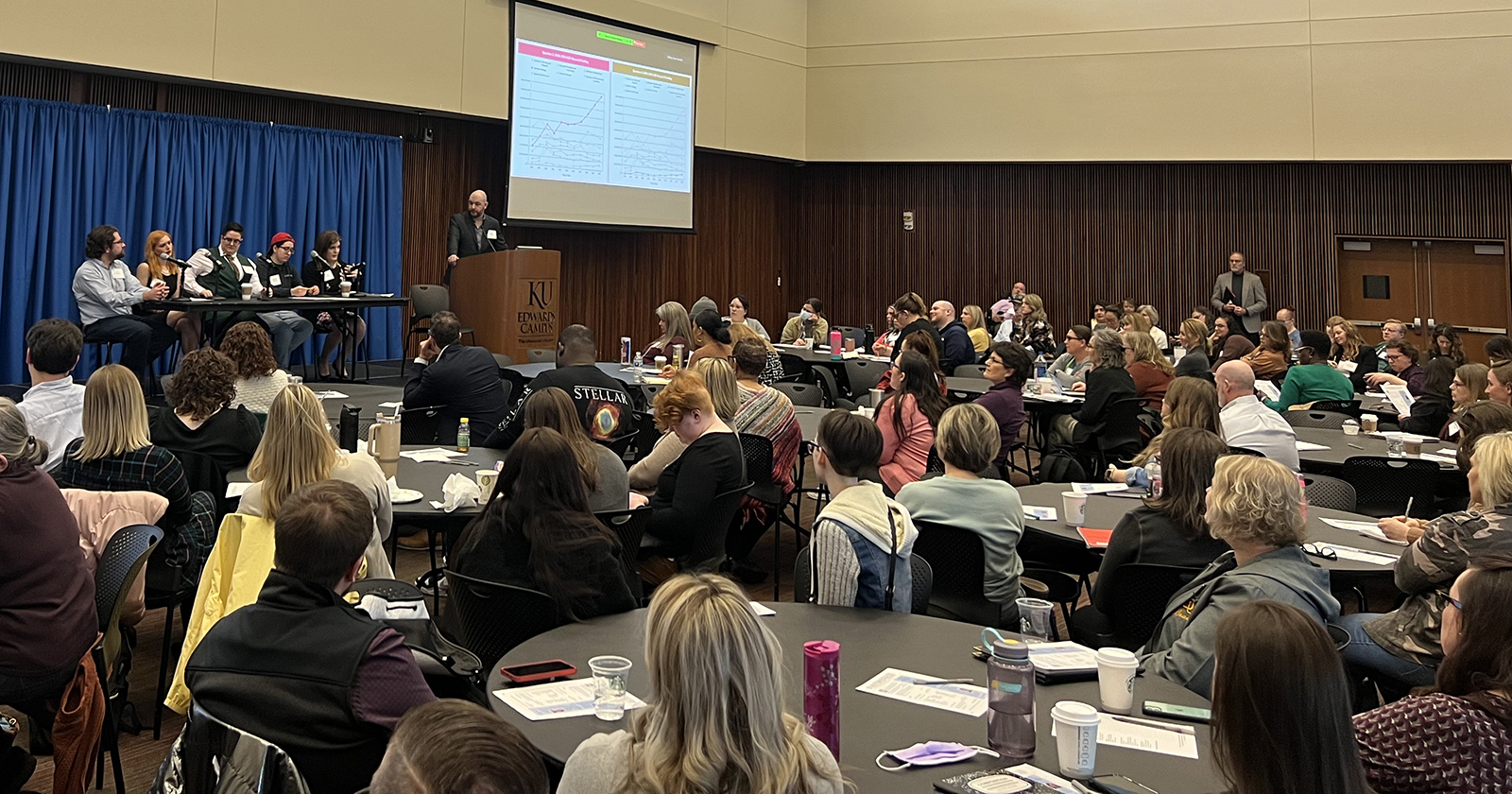Record attendance at Autism Across the Life Span conference

A record number of attendees participated in this year’s Autism Across the Life Span conference on March 24 at the KU Edwards Campus. More than 175 registered to attend the one-day event, hosted by the KU Life Span Institute’s Kansas Center for Autism Research and Training.
The event was an opportunity for researchers, educators, students, providers, and autistic people and their families to learn from national autism experts, as well as autistic individuals themselves.
The event’s opening panel featured individuals with autism who spoke about research and inclusion, quality of life, underemployment and the challenges of fitting into a neurotypical society. Panelists stressed the need to value the wants and needs of people with autism and support and empower them, rather than try to control them.
Panelist Brie Clemens, who had been diagnosed with autism as an adult, shared how learning they were autistic explained much about their life. It also revealed how they had been masking in response to all the ways they were scolded as a child, “until I became a fraction of myself," Clemens said.
Two keynote speakers addressed issues of understanding autism and supporting individuals who are autistic, along with their families.
Lea K. Davis, associate professor at Vanderbilt University Medical Center, addressed conference guests on her work to understand the genetic basis of autism and the many genetic influences that contribute to the cumulative traits of autism that are experienced highly differently from person to person.
Davis explained that individual genes have small effects that contribute to observable variations when combined with other genes. Autism isn’t tied to a single factor, and there is no single identified genetic variable, she said.
The second keynote speaker, Elizabeth McGhee Hassrick, associate professor at the A.J. Drexel Autism Institute, spoke about her work on building ecosystems of support for people with autism throughout stages of their lives, as well as for their families.
“Resources flow through social interactions,” McGhee Hassrick said, highlighting the need for constructive support for autistic individuals, as well as their parents or caregivers.
McGhee Hassrick said one problem that impacted autistic individuals is that schools frequently struggle to maintain evidence-based supports as school resources change year by year. Moving between stages of schooling and into careers can be particularly disruptive to support networks.
“There is a transition cliff post high school,” McGhee Hassrick explained.
The conference hosted several co-occurring breakout sessions on topics including healthcare, neurobiological factors, family support, sleep, inclusive research, transitioning into adulthood, and self-determination. The event also included a panel of adolescents with autism who spoke about gendered differences in autism experiences, and how autistic girls and young women have been underserved.
The Kansas Center for Autism Research and Training anticipates offering Autism Across the Lifespan again in 2025. To learn more about this year’s event, visit https://autismacrossthelifespan.ku.edu, and follow the Life Span Institute (@kulifespan) on Twitter to stay notified of future events.
View more images from the 2023 Autism Across the Life Span conference.